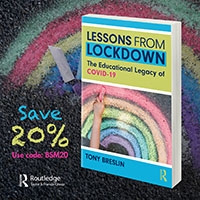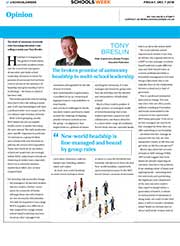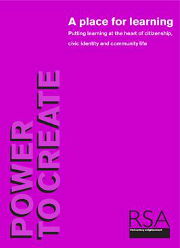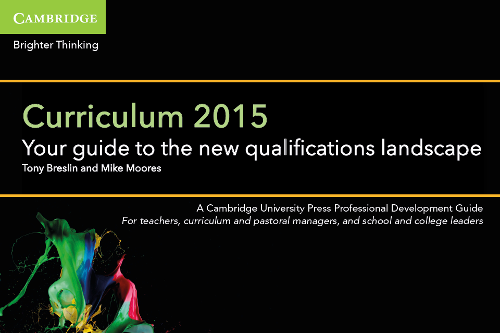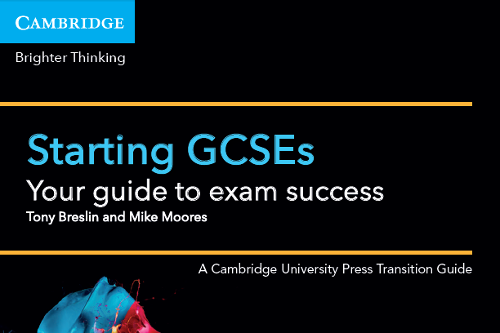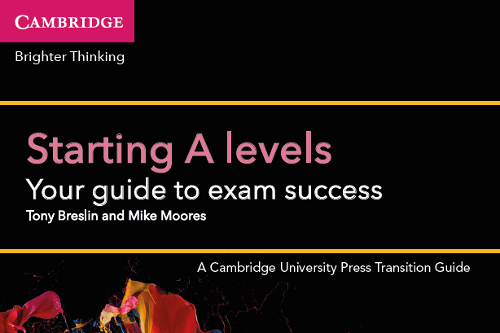












The UK Is home to 165,000 charities of all shapes and sizes
Financial Times, December 4, 2015

"Agencies across the governance landscape need to work together to establish a cross-sector working group or commission on governance."
Recommendation 29
Who Governs Our Schools? (RSA, 2017)
Transform Governance is a joint venture between Breslin Social Impact and Permuto Consulting


Need consultancy support? We have access to a range of specialists across sectors, across functions, and across the UK and beyond. Contact us to explore possibilities.
Apprenticeships and Vocational Education programmes: destinations of choice for middle class learners?
Monday 11th March 2013

The truth is that, as a society, we have never given the kind of status to craft and trade that we ought to have. No matter that today’s apprenticeships lead, rightly, to far more than the factory floor and that they flourish in other areas, notably the service sectors. For too long white-collar has triumphed over blue-collar, academic over vocational, professional over technical, lawyer over engineer. Too often young people who end up on a ‘vocational’ curriculum have landed there because they have fallen off the parallel but higher status ‘academic’ track; sometimes, they have ended up on a “work related” programme because they have been thrown off the mainstream curriculum for behavioural reasons: “throw the naughty boys a car engine” goes the cry. How, if that is the kind of curricular and behaviour management practice that we condone, will we ever ‘sell’ engineering and science as high status degree options?
After the better part of two decades championing the advantages of (an academic) higher education, we are beginning to question whether this is the only way to “widen participation”. Clearly, high quality, rigorously assessed vocational pathways, such as those offered by the apprenticeship framework, can offer a viable alternative – and an attractive one to young people given the emergence of university fees, student debt and graduate unemployment.
But our snobbery is longstanding. The Education Secretary’s utterances on his (not entirely satisfied) aspirations for the National Curriculum Review and his late, unlamented E-Bac have reinforced a hierarchy of knowledge in which the less conventionally academic is for the less able and in which, for the middle classes, vocational ‘options’ are for other people’s children.
How can we, in National Apprenticeship Week, address this? Four concrete steps might help:
- Recast what we mean by ‘breadth’ in curricular terms – 10 GCSEs or four A levels is not a broad curriculum but 10 (or four) variations on a theme – “Vocational Education” should be redefined as “Professional and Vocational Education” (an unashamed re-pitch to the middle classes) with every young person having a professional and vocational element to their studies at Key Stage 4 and 5;
- Build a new partnership between schools and FE colleges, such that we create genuinely integrated 14-19 pathways that allow us to make this new breadth a reality;
- Place authenticity at the heart of this new curriculum entitlement with internships, mentoring programmes, work shadowing opportunities and work experience placements at the heart of what our education system offers, such that these become a central component of the education of every young person;
- Embrace Andrew Adonis’s call, made at the conference, for a root and branch overhaul of Careers Education – and of Information, Advice and Guidance services for young people more broadly – and for the extension of UCAS’s role such that it becomes the national broker for apprenticeships as well as for higher education opportunities – the better integration of tracks from any apprenticeship pathway into higher education ought to be one thing that should follow from this.
Taken together, these steps might just begin to make professional and vocational pathways, such as those offered through apprenticeships, the chosen progression options for an increasing number of aspirational, middle class students and their parents.
Only when we achieve this can we begin to move towards a better parity between the academic and vocational domains. Lord Adonis is right to argue that as many young people should progress into apprenticeships as into higher education. It is vital, though, that each track attracts learners from across the social range. Widening participation doesn’t just mean getting working class and minority ethnic students into university; it means a broader social mix entering the full range of educational and training pathways that a reinvigorated approach to professional and vocational education can offer.
















